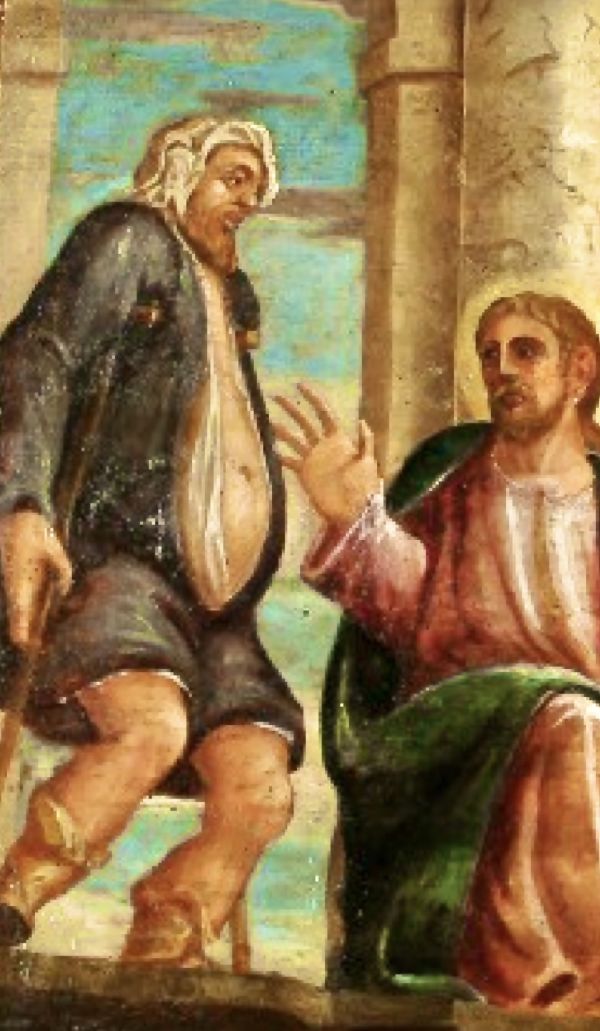No more frills: humanity cluttered with - or free
(Lk 14:1-6)
The Bible often presents Salvation under the image of a banquet in which God himself participates alongside man.
Here specific reference is made to the assembly of those summoned to break the Bread [«to eat bread»: v.1] - a scene still dominated by Judaizers.
In appearance, the surface is calm. All the more reason for the (mischievous) Lord to throw in the pebble, to reshape its soporific sides.
His directness still astounds, and baffles any quietism.
Strange that a hydropic could have entered the House of a Pharisee - but significant, in the sense of the Gospel call.
In the leader's abode [old-fashioned, or 'approved' fashion] the housed humanity is cluttered with vaguely spiritual shredding - not of the luminous, living Faith.
There one moves with difficulty.
In the assembly, someone doesn't stand up; he is crammed inside... of things that have to be eliminated as soon as possible - or he won't make it.
But it is only Jesus' question that immediately cleanses useless excesses.
Inside the well of v.5 it is as if not a donkey or an ox had fallen in, but a brother or a son, and ourselves.
In short: the excuses of legalism or conformist manners do not even touch the Father, while the leaders present do not know what word to utter.
Nor do they even vaguely conceive of the Will of God as Love that readily intervenes, that gets involved in vulnerabilities or eccentricities.
Instead, the Son - and whoever makes him present - grasps the hand of shaky humanity in its Oneness. And heals its limitation.
But He activates Himself not to stick it behind [as the directors of the time would have done] but to make it lighter, able to breathe and not just compress.
A merciless brushstroke this of Lk, emphasizing the difference between empty “teaching” - albeit in religious form - and 'action of Faith' linked to concrete life (v.3).
Yes: it was precisely the “expert ones” who lacked «the pleasure of recognizing the other [...] of being himself and of being different» (FT, 217-218).
In short, even originality or pain comes to us to generate right eyes; to teach us how to live. To remind us that we are called to be born again, far beyond the idea of 'perfection'.
In doing so, we cannot rely solely on context, on external approval; realities often lacking in humanizing passion.
There is a 'fire' that lives within us, a Calling by Name that knows how to dispose of useless, other people's ballasts. They trample and pollute us; therefore they must be placed in the background and flown over.
Our journey in the Spirit - even in the official place of worship - is an unprecedented route towards personal fulfilment.
We cannot turn away from the Goal that belongs to us.
In this way, any pain will be short-lived, and it will be a lesson: there we are simply giving birth to the essentiality that inhabits us.
Easter leap of Liberty.
[Friday 30th wk. in O.T. October 31, 2025]












